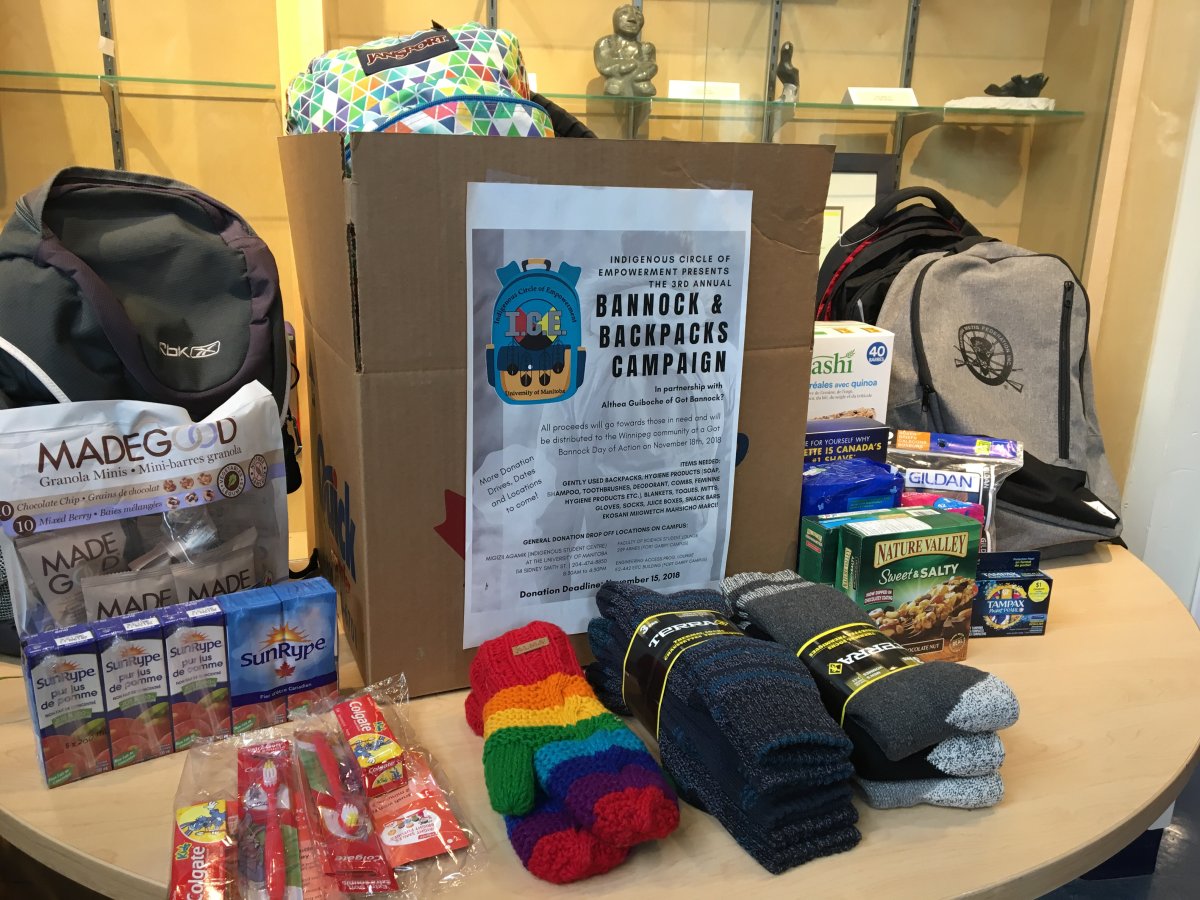Indigenous student leaders at the University of Manitoba have taken it upon themselves to extend a helping hand to people living on the streets of Winnipeg.

Students at the U of M who are part of the Indigenous Circle of Empowerment (ICE) began gathering donations Oct. 15. In addition to having two different drop off locations on campus, they’ve been at university sporting events, both in and out of town.
Items being collected include:
- Hygiene products (soap, shampoo, toothbrushes, deodorant, combs, etc.)
- Winter gear (blankets, toques, gloves, socks, scarfs, etc.)
- Gently used backpacks
- Light snacks (juice boxes, granola bars, etc.)
“It’s grown every year since (2016) and we’ve had a lot of support from the community on and off campus,” organizer Kayla Lariviere said.
“We’ve even had donations from the Winnipeg Jets which is awesome to see it grow.”
The campaign, now in it’s 3rd year, caught the attention of another Winnipeg non profit group — the Kindred Project. They collect donations of feminine hygiene products to provide to homeless and underprivileged women in and around Winnipeg. They have paired up with ICE to contribute to the campaign.
The collection of donations will wrap up Thursday, to allow for preparation of the items which will be distributed to the less fortunate on the weekend.
The students, along with a local bannock chef Althea Guiboche, will be at the corner of Main Street and Dufferin Avenue Sunday afternoon handing out food and supplies to those in need.
The Indigenous Circle of Empowerment group (ICE) at the U of M organizes similar events and campaigns throughout the year.
“As of October 2016, 75 per cent of Winnipeg’s homeless identified as Indigenous. We (ICE) wanted to show these people that the Indigenous community cares about them and is working towards fighting the stigma that exists around homelessness,” Kristen Fleury, a member of ICE explained.









Comments